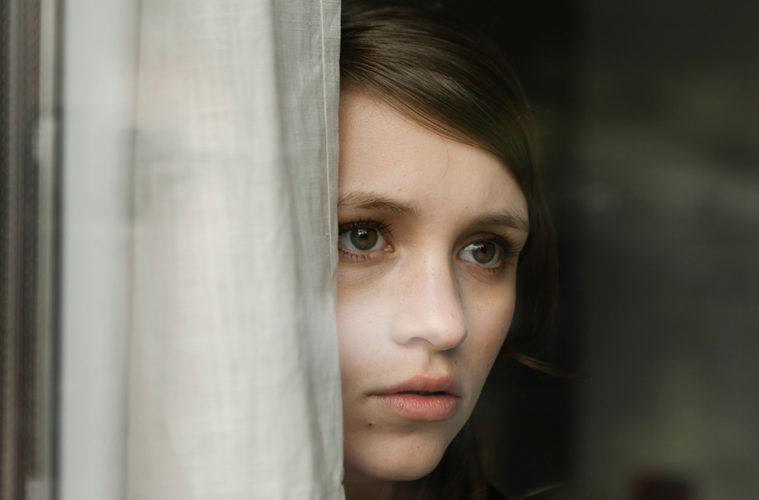We Monsters doesn’t dally but dives straight in — the action and crux of the story is virtually immediate. Hip dad Paul (Mehdi Nebbou) and his moody teen Sarah (Janina Fautz) are en route to a summer camp when she informs him that they are to stop to pick up her friend Charlie (Marie Bendig); apparently, she’s coming with them. Charlie, part of the generation of teenagers to whom manners is just an uninteresting rumor, commandeers the back seat of the car as if it were her own dressing room. Taking a break in a woody land near the middle of nowhere, the two girls rush off. After a while Paul begins to get concerned and goes searching for the pair. “Okay, game over, come out, you win,” he calls out amongst the trees, unaware that it’s a long time to being game over. He comes across Sarah panicked, hovering the edge of a reservoir. He pulls her back over the railings. Where’s Charlie? She looks down at the waters crashing below as Charlie’s backpack floats to the surface. “She’s dead, Dad. I killed her. I pushed her over the edge.”

“So what shall we do now?,” Sarah asks with a sense of hopefulness over breakfast the following morning (Dad has decided not to turn her in). The answer of course being a jam session in their in-house recording booth (he’s some kind of music producer). She sings a song for the new age, warning people to “lock up your hearts,” because there are monsters about if you didn’t already know. The song is there to represent the film, the new age blood suckers, and it indeed does: it’s nothing but sophomoric.
Another strange moment occurs when Paul and Sarah’s mother Christine (Ulrike C. Tscharre), now divorced, out driving come to a dead end in the road (just like in their lives). Paul stumbles out of the car and pulls a sleeping Sarah off the back seat. For some reason, instead of simply turning the car around, the three lost souls start wandering across a nearby field before walking all the way home. In the field director Sebastian Ko cuts to a wide wide-shot, reminiscent of a shot in Abderrahmane Sissako’s Timbuktu, where on one corner of the screen is the floating dead body of a fisherman and on the other is his murderer walking away. Here, not only are our eyes in conflict as they flick back and forth, but so too our hearts. Ko’s shot is simply that of three actors walking across a field — it is a rather pretty field though.

We Monsters is not so much a morality film but a scientific experiment void of any actual scientists. Its characters are plastic toys that Ko and screenwriter Marcus Seibert manipulate from theme to theme rather than scene to scene, before realizing that they’re not much interested in toys, yet keep on playing anyway and the cameras are rolling, after all. As Pauline Kael once wrote, “Nothing is so deathly to enjoyment as the relentless march of a movie to fulfill its obvious purpose.”
Littered throughout We Monsters are Roy Andersson-like shots of standing characters staring into an apparent abyss, but here again we’re back to the emptiness of the field shot, because not a single superlative that’s ever been flung Andersson’s way can apply to We Monsters. The shots are not of characters staring into an apparent abyss but simply that of bored actors staring at their next mark. They’re bored with the experiment because it’s an amateurish one where the psychology stays on the screen.
We Monsters is screening at TIFF. See the trailer above and our coverage below.


